-
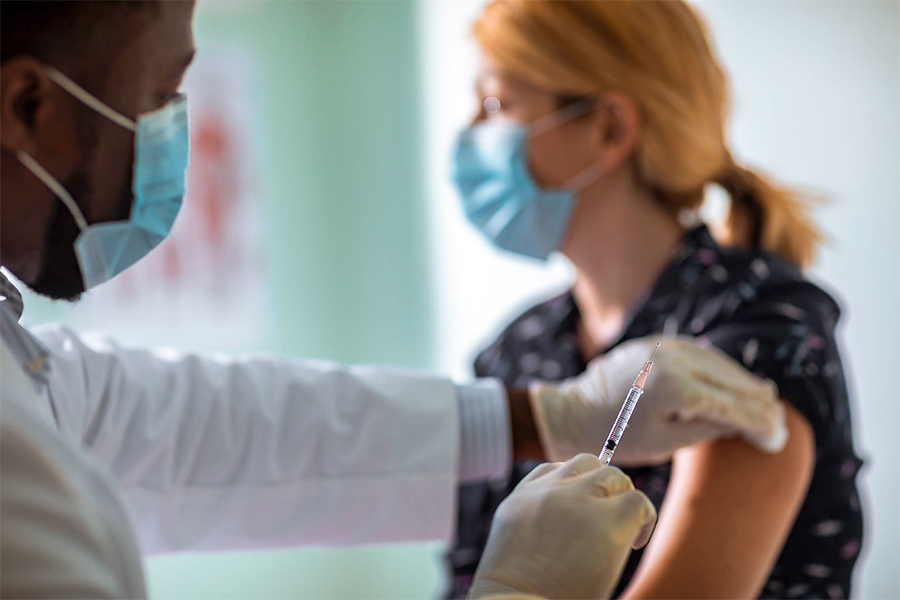
Vaccine Guilt is Real. Here’s How to Deal, According to Local Ethicists
Feb 8, 20215280 MAGAZINE: There is not any data on the prevalence of vaccine guilt, but Dr. Matthew Wynia surmises that many people who have already received the COVID-19 vaccine probably feel like their doses could have gone to someone more deserving. “If you could take your vaccine dose and walk across the street and give it to your elderly neighbor, then I would say you should do that,” says Wynia. “But you can’t. That’s not an option.”Full story -
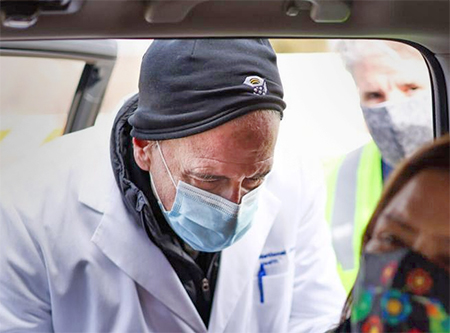
Who put Kafka in charge of Colorado's COVID-19 vaccine distribution?
Feb 7, 2021THE GAZETTE: Center Director Matthew Wynia, MD, MPH says, “We’ve created really nuanced vaccination and allocation strategies, when the main problems turn out to just be logistics.” In Colorado, we relied on individuals to figure out when they were eligible themselves, and then we kept changing the priorities. At this stage, Wynia believes the most effective use of the vaccine is to get it to those communities that are particularly hard hit, but it takes time and the energy and resources to reach out to people in those communities. "It really lifts a psychological burden when you get the shot," said Wynia. "It really does. People cry. It’s emotional. It's amazing." Said Wynia of the mood at vaccination clinics right now: "It is the happiest place on Earth.”Full story -
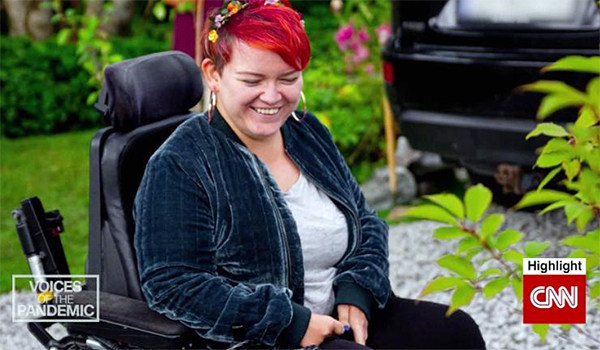
Many doctors have negative perceptions of patients with disabilities — and that impacts quality of care, study finds
Feb 4, 2021CNN: Just 56.5% of doctors strongly agreed that they welcomed patients with disabilities into their practices, and only 40.7% of doctors surveyed reported feeling very confident about their ability to provide the same quality of care to patients with disabilities, according to the study, co-authored by Eric G. Campbell and Julie Ressalam, published in the journal Health Affairs. "You would think that doctors should be very confident in their ability to provide equal quality care to all the patients that they agree to see, so that's a troubling finding," said lead study author Dr. Lisa Iezzoni, a professor of medicine at Harvard Medical School.Full story -
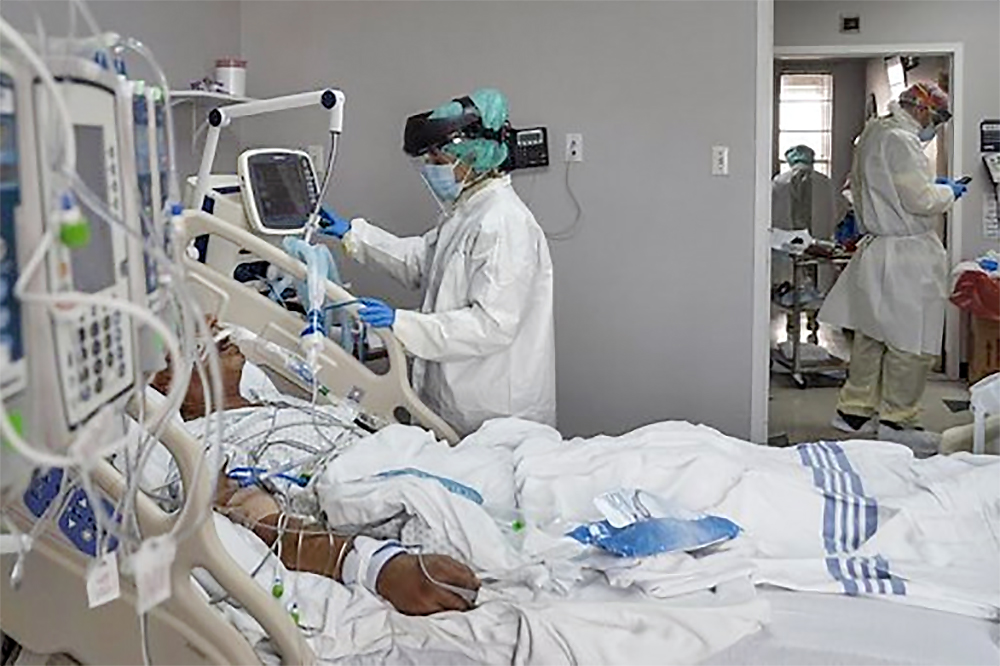
COVID-19: How to implement crisis care standards when needed
Jan 29, 2021AMA JOURNAL OF ETHICS: State officials often don’t want to take responsibility for activating crisis standards of care because doing so “implies that their planning to avoid crisis standards of care didn't work,” says Center Director Dr. Matthew Wynia. "I understand why a governor would not want to acknowledge the reality of their situation. It feels bad. It looks bad. It is bad,” he said. “But failure to acknowledge the reality of a situation does not change the reality of the situation. And that’s unfortunately where some localities and states are at right now.” In an “Ethics Talk” video podcast from the AMA, Wynia outlines the tough decisions administrators and physicians face when confronted with rapidly dwindling resources. Listen to podcast>>Full story -
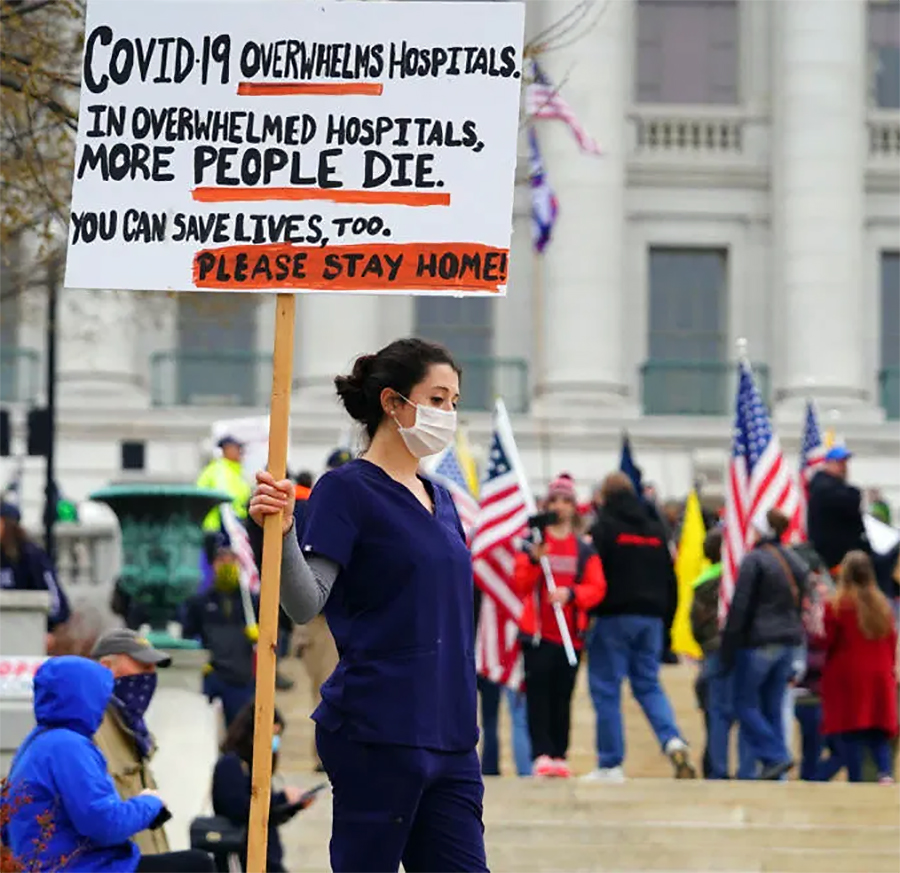
The Consequences of Public Health Law Vacuums
Jan 25, 2021BILL OF HEALTH; HARVARD LAW SCHOOL: Laws and social policies not only shape health in a given society, but also go a long way in determining which populations and communities have relative health gains/losses. The absence of critically needed public health laws or a “public health law vacuum,” has, and continues to have, devastating consequences in the COVID-19 pandemic. Daniel Goldberg, JD, PhD illustrates how the federal government could have done and still could do to regulate in the name of public health emergency response (and preparedness for the future).Full story -

Using “Don’t Know” Responses in a Survey of Oncologists Regarding Medicinal Cannabis
Jan 21, 2021SURVEY PRACTICE: A national survey by Eric Campbell, PhD and co-authors asked oncologists about views regarding Medicinal Cannabis' (MC) risks/benefits, and whether they had sufficient knowledge to make MC recommendations clinically. Testing of the survey instrument suggested that physicians did not always feel that they possessed adequate MC knowledge in all domains, so Don't Know options were added to six of 27 survey items. The DKs appear to be valid responses, improving data quality by providing some respondents with an answer category that best fits their “true” answer.Full story -

The Test of a Moral Society
Jan 21, 2021BOULDER WEEKLY: Center Director Matthew Wynia, MD, MPH reflects, “I don’t think many people thought that we would do so poorly as a society in coming together around this pandemic and around a coherent response. Our assumption was that the national leadership would come together around this, like in a war or after 9/11. This is not just about the pandemic, it goes outside of bioethics and into social ethics, and is something we’re going to be grappling with as a society for a long time.”Full story -
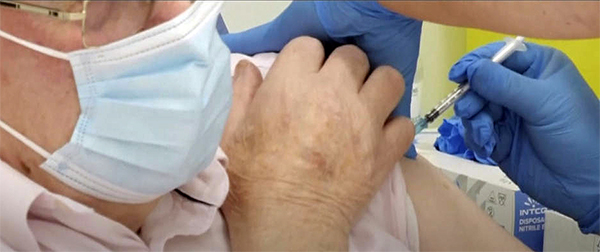
States struggle to determine COVID-19 vaccine priorities
Jan 19, 2021CGTN AMERICA: Constructing an equitable system and determining in what order people should get the vaccine has sparked some debate, which often boils down to: “Who deserves this rather than where can it do the most good,” said Center Director Dr. Matthew Wynia. “This means balancing the most high-risk folks and those who are most responsible for transmission, like prisoners. People who are in circumstances where they can’t help but spread it to a whole bunch of other people because then you could avoid these super-spreader events.”Full story -
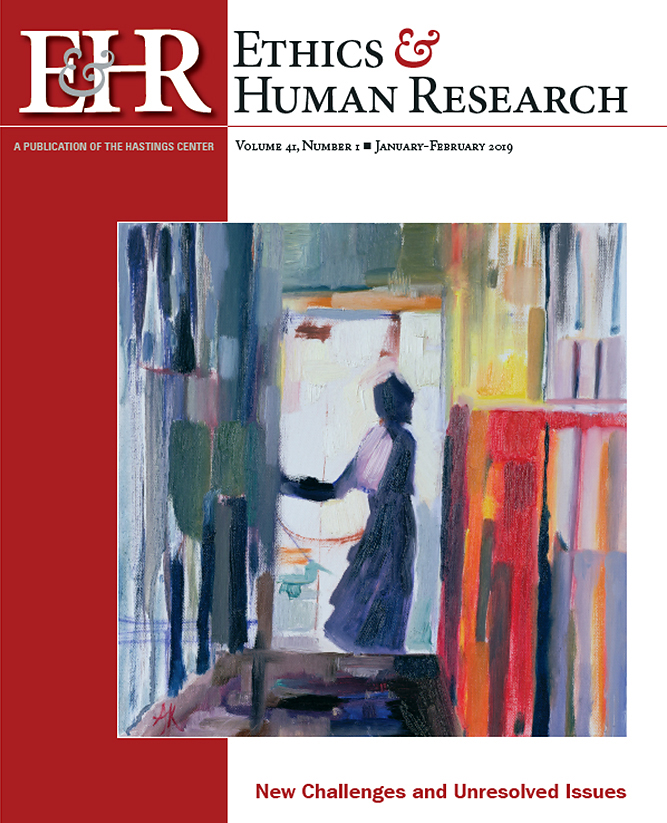
Should Participants in Clinical Trials Be Able to Withdraw from Passive Follow-Up?
Jan 19, 2021ETHICS AND HUMAN RESEARCH: A research participant’s right to withdraw from all research procedures is widely accepted, but there can be justifiable limits to a participant’s exercise of autonomy to withdraw from some procedures. Clinical outcomes trials depend on complete subject follow-up for accurate assessment of the safety and efficacy of investigational therapies. Warren Capell, Matthew Wynia and co-authors argue that a consent process that prospectively informs participants of mandatory passive follow-up is ethically justified and optimizes the balance between autonomy and beneficence.Full story -
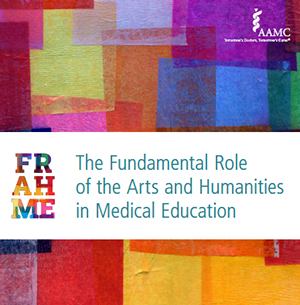
Why we need the arts and humanities to get us through the COVID-19 pandemic
Jan 6, 2021USA TODAY: David J. Skorton and Lisa Howley wrote an opinion article about the monograph, "The Fundamental Role of the Arts and Humanities in Medical Education," recently issued by the AAMC, with the objective to improve the education, practice, and well-being of physicians through deeper integrative experiences with the arts and humanities. Tess Jones, PhD, was a member of the Arts and Humanities Integration Committee, which guided and shaped the concepts in this report.Full story -

Ethical Challenges in the Middle Tier of Covid-19 Vaccine Allocation: Guidance for Organizational Decision-Making
Jan 15, 2021THE HASTINGS CENTER: This “ethical framework,” aims to help structure time-sensitive discussion of emerging ethical challenges in the middle-tier distribution of Covid-19 vaccines. Matthew Wynia, Jean Abbott and co-authors developed guidance to support equity in response to vaccine hesitancy, prioritization of health care workers and health justice concerns that integrate clinical, organizational, and public policy initiatives to uproot social inequalities that produce health inequities.Full story -

Year of the Ethicist
Jan 11, 2021COLORADO MAGAZINE-HISTORY COLORADO: Brian Jackson, MD, MA, writes, "The pandemic has exposed public health shortcomings and deadly racial inequities, propelling new ways of thinking about the health and wellbeing of our whole society, including what a “right to health care” really means. We’ve realized that a fair process for deciding how to respond might be more important than the response itself."Full story -
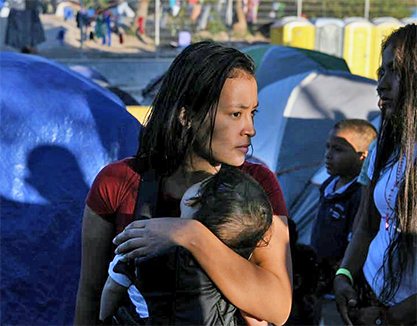
US: ‘Remain in Mexico’ Harms Children, Families
Jan 6, 2021HUMAN RIGHTS WATCH: The US Migrant Protection Protocols Program (MPP) subjects children and adults to serious, ongoing harm, including abduction and rape, and should be quickly and decisively dismantled, according to a 103-page investigative report, "Like I'm Drowning," co-authored by Warren Binford, JD, EdM. She concludes, “The MPP was crafted and carried out by US government officials who knew or should have known they were putting children in harm’s way.”Full story -
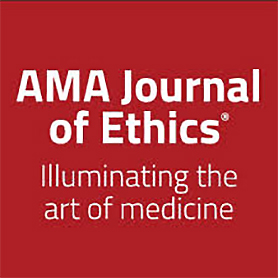
Rationing Critical Care During COVID Surge
Jan 12, 2021AMA JOURNAL OF ETHICS: In this video edition of Ethics Talk, journal editor in chief, Dr Audiey Kao, talks with Dr. Matthew Wynia about implementation of crisis standards of care in response to the dramatic surge in COVID-19 cases that is pushing the limits of US hospitals' critical care capacity.Full story -
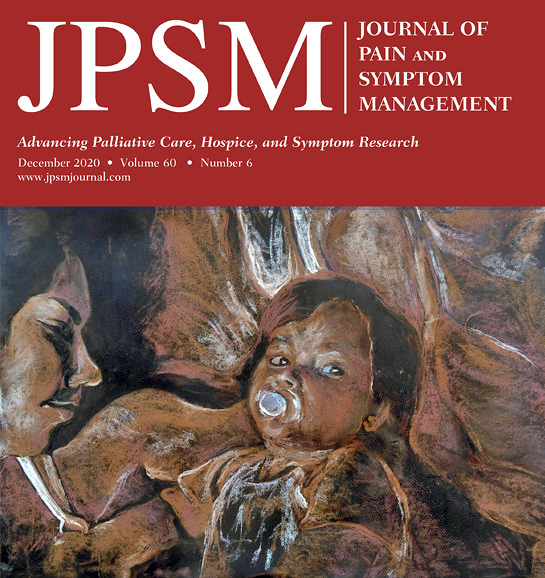
Colorado Palliative Care and Hospice Crisis Standards: Moving Beyond Critical Care Planning
Jan 10, 2021JOURNAL OF PAIN AND SYMPTOM MANAGEMENT: Jean Abbott, MD, MH, and co-authors review state and regional gaps in planning for scarcity in palliative care and hospice services during this pandemic and describe the initiatives Colorado has developed to address potential scarcities for this vulnerable and diverse group of people. They conclude that advance planning will help decrease stress on individual patients and families by helping patients, families, and their medical providers understand a patient’s wishes. On a community level, anticipation of potential needs if crisis standards of care must be activated, will decrease stress on healthcare systems by removing the burden of making allocation decisions at the bedside.Full story -
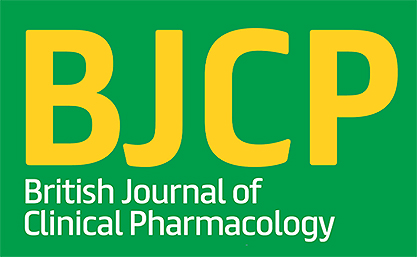
“There are ways … drug companies will get into DTC decisions”: How Australian drug and therapeutics committees address pharmaceutical industry influence
Jan 4, 2021BRITISH JOURNAL OF CLINICAL PHARMACOLOGY: Drug and Therapeutics Committees make important decisions about which medicines are approved for use in hospitals, health systems and reimbursed by insurers. Lisa Bero, PhD and co-authors examine the potential influence of conflicts of interest of committee members on these decisions and makes suggestions for minimizing this influence and keeping the decisions based on evidence.Full story -
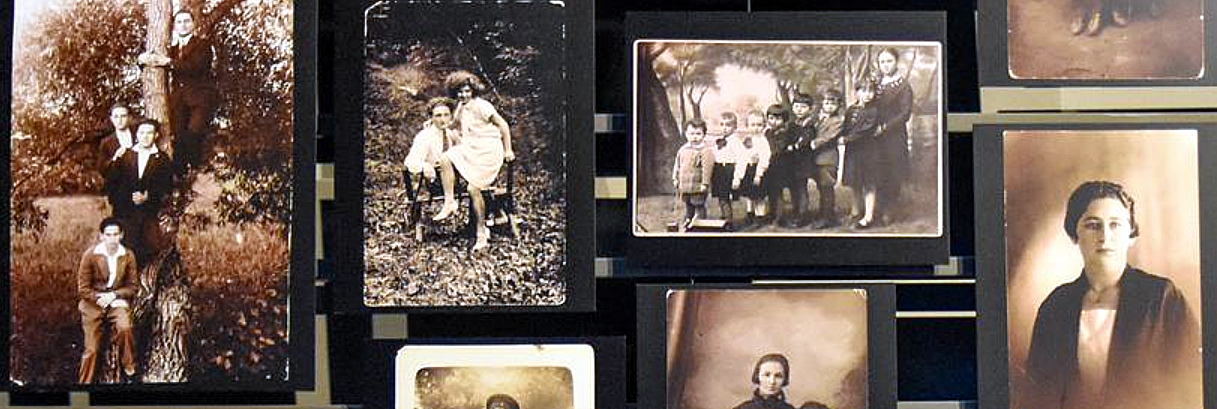
Legacies of the Holocaust in Health Care
Jan 4, 2021AMA JOURNAL OF ETHICS: This month's Journal is dedicated entirely to contemporary lessons to be learned from health professional involvement in the Holocaust. From abortion to xeno-transplantation, deliberation on almost every ethics topic in health care today—genetics, informed consent, public health, military and civilian health policy and practice, death and dying, human subjects research, and refugee care—is influenced by Nazi medical crimes. Matthew Wynia and Tessa Chelouche were co-editors and there are multiple articles featuring faculty and associates of the Center.Full story -
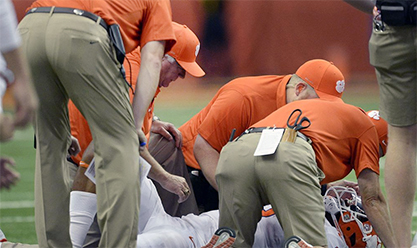
Study: College football players underestimate risk of concussion
Dec 29, 2020ATLANTA JOURNAL CONSTITUTION: Christine Baugh, PhD, MPH, and her co-authors surveyed 296 college football players from four teams in the Power 5 Conferences of the NCAA. They concluded, “That athletes underestimated their risk of concussion and injury in this study raises important ethical considerations. What is the threshold for college athletes to be sufficiently informed of the risks and benefits of football to make decisions that align with their values and preferences?”Full story -
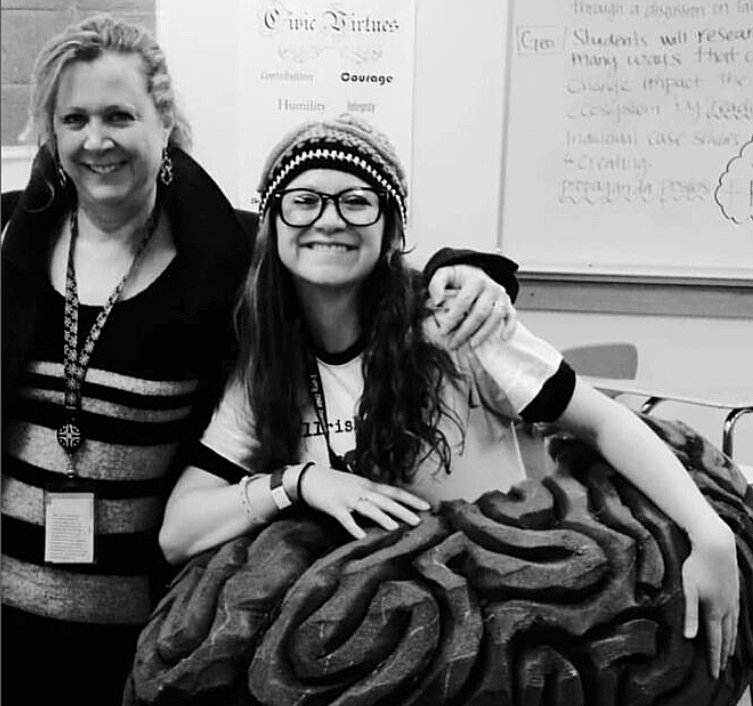
How my mom saved my life after doctors missed my brain bleed
Dec 18, 2020PBS/WHYY-The Pulse: My mom saved my life that day. But what if she hadn’t been there? What if they didn’t catch it at all? I could’ve ended up permanently disabled. Or worse — I could have died. How come everybody but my mom dismissed my symptoms? Center Director Matthew Wynia finds 22-year old Mimi Hayes quite inspiring - stroke survivor, comedian and now a budding journalist. She called to talk about medical errors and ethics...Full story -

Food Industry-Backed Research Gives Results Funders Want, New Analysis Shows
Dec 16, 2020SCIENTIFIC AMERICAN: A recent study by public health scientists at Deakin University in Australia, found that more than half of 1,461 studies yielded outcomes favorable to company products compared to less than 10 percent lacking such support. Commenting on the recent analysis, Lisa Bero, PhD, contends that industry may skew research in ways peer review cannot catch. She cites four key approaches industry uses to manipulate research: by influencing what research questions are asked, how studies are designed, how conclusions interpret data and whether unfavorable findings ever get published.Full story